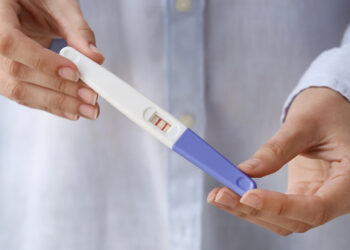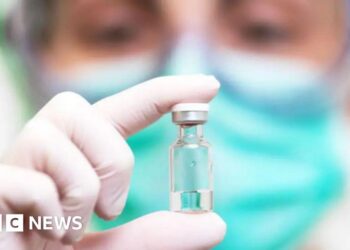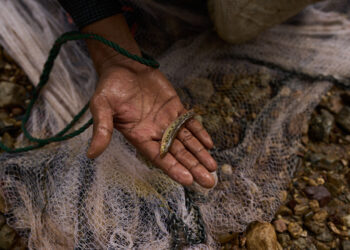
- Proper hydration is essential for health, especially during the hot summer months.
- Alkaline or electrolyte-infused waters are often touted for their purported health benefits, but experts say tap water is cheaper and probably sufficient for most people.
- Most people don’t need added electrolytes in their water unless they are losing excess fluids.
- You can follow your body’s thirst cues to help ensure you are drinking enough water or monitor your recommended daily intake.
As summer temperatures soar, so does the popularity of so-called “functional” waters — especially alkaline and electrolyte-infused varieties — often touted as “smarter” ways to hydrate when heat and humidity are at their peak.
With so many options promising everything from better hydration to balanced pH levels, it’s no wonder consumers are confused about which type of water is truly healthiest.
The rise of specialty waters, which may be packaged with sleek branding and lofty claims, has made plain old tap water seem a little too plain. But do these trendy alternatives really offer health benefits, or are they just expensive hype?
According to experts, the truth may be much simpler — and cheaper — than it appears.
Blen Tesfu, MD, a registered dietitian nutritionist and physician at Welzo, told Healthline that staying well hydrated is especially important during the hotter months of summer.
Tesfu said the higher temperatures during summer result in rapid fluid loss and dehydration, increasing the need to consume more water to replace the loss.
Dehydration can cause tiredness, confusion, and reduced energy, said Tesfu.
“Staying hydrated is important because it allows the body to properly regulate temperature, promote energy through optimal digestion and absorption, and indirectly support organ function,” she said.
According to Tesfu, it’s especially important to be proactive about hydration if you’re outside being active or standing in the sun.
“Adequate hydration can help reduce the incidence of heat-related illnesses and is particularly important for athletes and outdoor laborers,” she said.
Tesfu explained that alkaline water has a pH higher than that of tap water, which generally falls in the range of 6.5 to 8.5
“The thinking behind alkaline water is that it can neutralize excess acidity in the body, which can support overall health,” she said, adding that while some think it can alkalize the body or boost energy, there’s no research supporting these claims.
Electrolyte-enhanced waters, on the other hand, contain the essential minerals lost during sweating and exercise.
“Electrolyte-infused waters can do some good if your body has just suffered a massive loss of electrolytes through sweat or heavy physical activity,” said Tesfu.
She added that replacing electrolytes helps keep the body’s fluid balance in check while also helping to prevent dehydration and cramping.
Despite the popularity of these trendy beverages, they may not be necessary in order to stay hydrated.
For most people, regular tap water should get the job done.
“It’s cheap, readily available, and typically contains the minerals that your body needs to stay hydrated,” Tesfu said.
Everett agreed. “For most individuals, drinking water throughout the day and consuming a diet with foods that are rich in minerals should support adequate hydration.”
Everett shared some examples of foods rich in minerals:
“For those who are more active in the summer or who tend to really sweat, a pinch of salt and a splash of citrus can help water mimic the benefits of electrolyte drinks,” she said.
Water-rich foods, such as watermelon, celery, strawberries, oranges, and lettuce, can also be helpful.
Staying hydrated is especially important during heatwaves or if you’re in a hotter climate.
If you are going to be exposed to the heat for a prolonged amount of time, be sure to drink fluids before, during, and after. Be aware of the symptoms of heat-related illness, including elevated heart rate, muscle cramping, and dizziness.
“For those who are more active in the summer, a pinch of salt and a splash of citrus can help water mimic the benefits of electrolyte drinks,” she said.
If you sweat a lot, you would probably benefit from adding electrolytes to your water to help replace what you lost through perspiration.
Electrolyte replacement may benefit highly active people to promote recovery, as well as those who work or exercise outdoors when temperatures are high.
Electrolyte replacement should also be tailored to the individual, and needs may vary based on several factors, such as underlying conditions, any medications you’re taking, your level of activity, or where you live.
If you’re curious about electrolyte replacement, ask your a healthcare professional about the possible benefits.
Conventional wisdom says you should drink eight glasses of water every day. However, the truth is that people’s needs vary, from person to person, and even from day to day.
NASEM guidelines suggest that females consume 2.7 liters (around 91 ounces) of water daily from both food and drinks. Males should aim to consume 3.7 liters (about 125 ounces) daily.
They further state that people’s needs will increase when they are active or in hot environments.
Tesfu adds that a good way to monitor your hydration is to track the color of your urine.
“Clear or pale yellow urine is a sign of sufficient hydration, while dark yellow or amber-colored urine may mean that you are drinking too little,” she said.
She also agreed with NASEM’s advice to drink when you are thirsty.
It’s “your body’s way of telling you you need fluid,” she said.
If you find that you don’t really like drinking water, Everett reiterates that not all of your water intake has to come from fluids.
“Fruits and vegetables are also hydrating and sources of electrolytes/minerals and other healthy nutrients,” she said.
She also offered tips for making water more palatable.
“Adding lemon slices, fruits (e.g., berries, pineapple), herbs (e.g, mint, basil) or cucumbers can enhance flavor and promote drinking,” said Everett.
Cold brew iced tea is another option, she said, which can boost both flavor and your antioxidant intake.
So, no matter how you choose to stay hydrated, remember: at the end of the day, it’s about listening to your thirst and finding what works for you.
Source link : https://www.healthline.com/health-news/alkaline-electrolyte-tap-best-water-hydration
Author :
Publish date : 2025-07-22 11:28:22
Copyright for syndicated content belongs to the linked Source.










